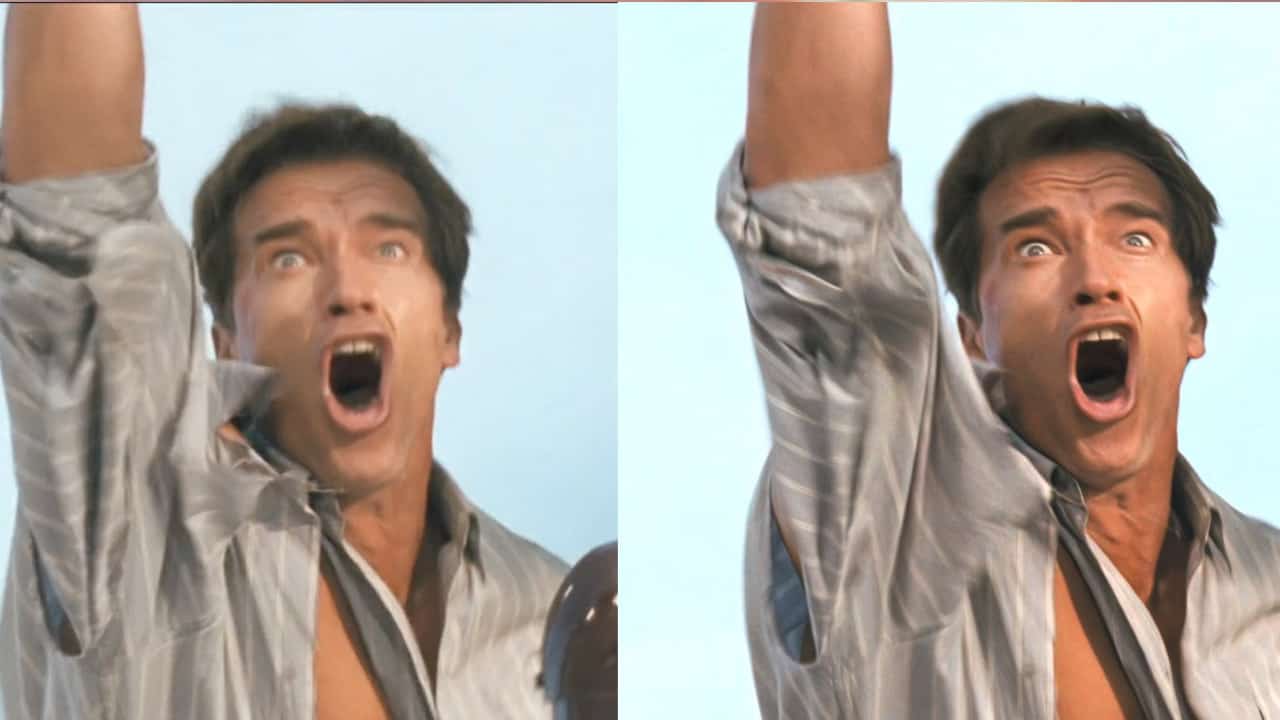However, only some people think the restorations are bad, and now they have a surprising advocate – noted film preservationist Robert Harris. Harris is the man behind the famous restorations of Lawrence of Arabia, Spartacus, The Godfather trilogy and many more. In a post to Home Theatre Forum, he acknowledged how different they look, but also explained that’s not necessarily a bad thing. On True Lies, “Shot 35 and blown up to 70, the visuals of the new 4k UHD are absolutely not what the film was upon release, but the secret sauce works, and allows a presentation that appears far better than it might without it.”
In a post about Aliens, he elaborated a bit more on why these restorations have his approval. “Original prints were on the grainy side, as a higher speed stock was used. I always thought it looked fine, as that was the look. No problem. But there were those who felt that it was too grainy. Enter the new 4k UHD from Disney via Fox, and it has an entirely new look. And it’s a look that I like. Very much! The image has been de-grained, with zero loss of resolution, which if anything as been slightly heightened. Color are meticulously reproduced. And there’s an overall clarity that is new to the film.”
As far as Harris is concerned, these restorations have been done the right way, and there is a lot of logic behind what he says. Cameron always favoured shooting his film in a process called Super 35, as it allowed him to print a larger film frame on the stock that would make the home video releases look better. In True Lies or Titanic, he was able to show the films in 2:35:1 scope theatrically. Then, when reformatted to 1:33:1 (the standard TV ratio in the era before widescreen TVs), he could reveal more of the frame at the top and bottom, avoided the pan-and-scan look common at the time, making the films play better at VHS. The downside was Super 35 was grainy. This wasn’t super noticeable on DVD and even 1080p Blu-rays, but it proved problematic on 4K, hence the restoration.



I think there’s too much emphasis on the “artists” for this. I think there’s a death of the author kind of deal where once a thing is out there, it’s up to the audience what it means. Well it’s not that the audience 100% owns it, but it shouldn’t be 100% the artist’s decision either. If you’re making art for yourself then keep it to yourself. But If you’re making art for others then what those people want matters too.
Legally it’s what the owners of the copyright want that ultimately decides it. But morally speaking, actively preventing people from seeing the thing they saw before seems wrong to me. People change which means artists change. Sometimes you just like an artist’s earlier work better and having the artist later on in life alter it means you’re no longer able to really see the artist’s earlier work.